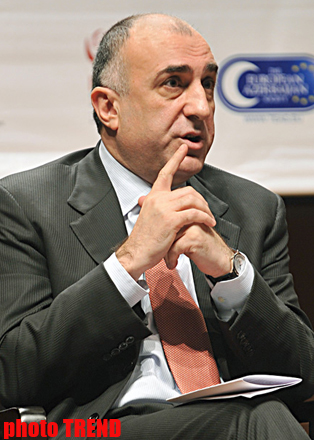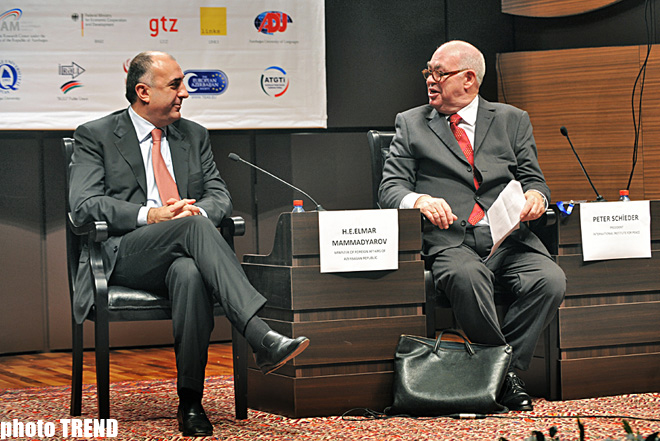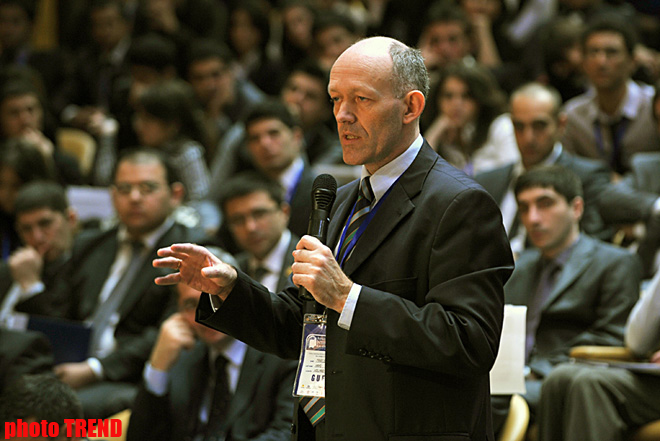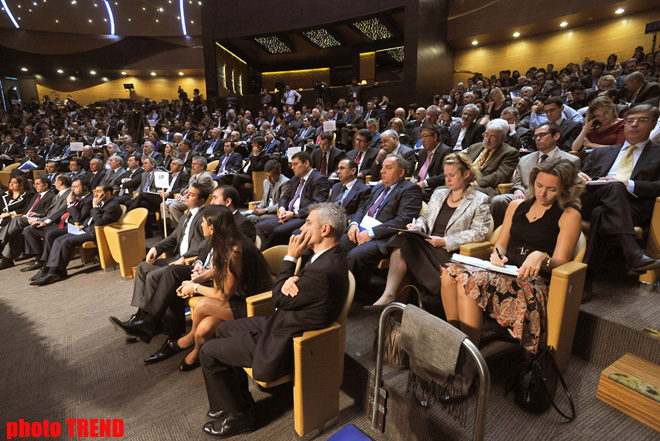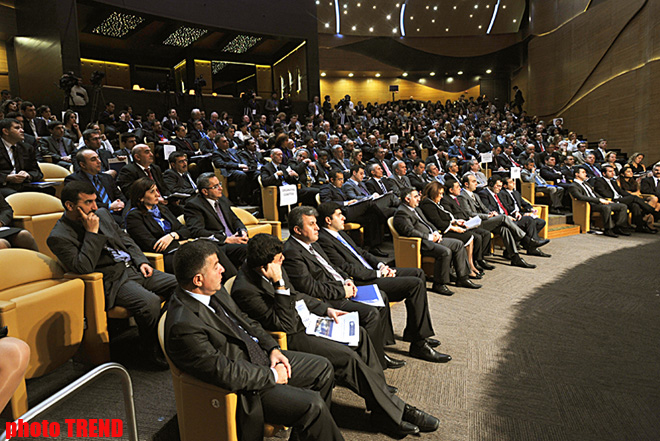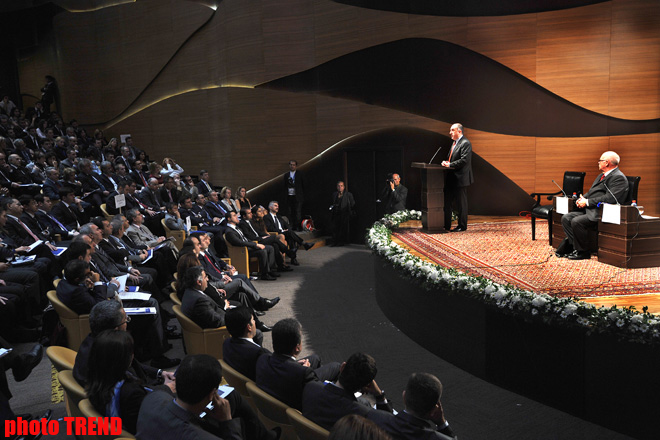Azerbaijan, Baku, Oct. 22 / Trend S.Agayeva /
The parties to the Armenian-Azerbaijani conflict must remove the negative aspects from the table of negotiations on the Nagorno-Karabakh, Azerbaijani Foreign Minister Elmar Mammadyarov said speaking at the opening of 'The South Caucasus in a Changing World "Annual Symposium of International Relations Scholars in Baku today.
According to Mammadyarov, these negative aspects include the reluctance of Armenia to withdraw troops from the occupied Azerbaijani territories, obstacles put by Yerevan in repatriation of IDPs to the occupied territories and Nagorno-Karabakh region and Armenia's requirements to determine the status of Nagorno-Karabakh at this stage, which is simply impossible now.
"The Nagorno-Karabakh conflict poses a serious threat to the development of the region and peoples living there. We understand that an agreement between the parties to the conflict on yet several existing negative milestones can be a good a base for the transition to a complete solution to the conflict," he said.
Mammadyarov said the region must do everything to achieve a lasting peace and stability.
"There is a strange situation in the negotiation process today, as neither Azerbaijan nor the OSCE co-chairing countries can get a definite answer from Armenia on the Madrid principles," Mammadyarov said.
The repatriation of representatives of the Azerbaijani community of Nagorno-Karabakh to the occupied territories will be an important aspect of the talks, he said.
"Azerbaijan does not intend to refuse from the peace process and will continue the talks, which are not so intensive today," Mammadyarov said. "Armenia should not hinder the negotiation process."
"In the long term, I am sure Azerbaijan's territorial integrity will be restored in accordance with the UN requirements," he said
The conflict between the two South Caucasus countries began in 1988 when Armenia made territorial claims against Azerbaijan. Armenian armed forces have occupied 20 percent of Azerbaijan since 1992, including the Nagorno-Karabakh region and 7 surrounding districts.
Azerbaijan and Armenia signed a ceasefire agreement in 1994. The co-chairs of the OSCE Minsk Group - Russia, France, and the U.S. - are currently holding the peace negotiations.
Armenia has not yet implemented the U.N. Security Council's four resolutions on the liberation of the Nagorno-Karabakh and the surrounding regions.
'The South Caucasus in a Changing World "Annual Symposium of International Relations Scholars is running in Baku from Oct. 22 to 23.
By enhancing regional cooperation and networking, the Symposium aims to contribute to the growing community of scholars in Azerbaijan and the region who are interested in regional politics, economics and international relationships.
The symposium is attended by over 150 foreign and local experts.
The symposium will discuss the topics such as "Global challenges in the regional context," "Problems of regional security - conflict and post-conflict development", "The emerging economic trends in the South Caucasus - the development of information technology and energy" and "Foreign Policy in the Caucasus: strategies and choices".
It is planned to publish a book including papers delivered at the Symposium by participant-scholars. Publication will be distributed to the scientific and think tanks around the world.

